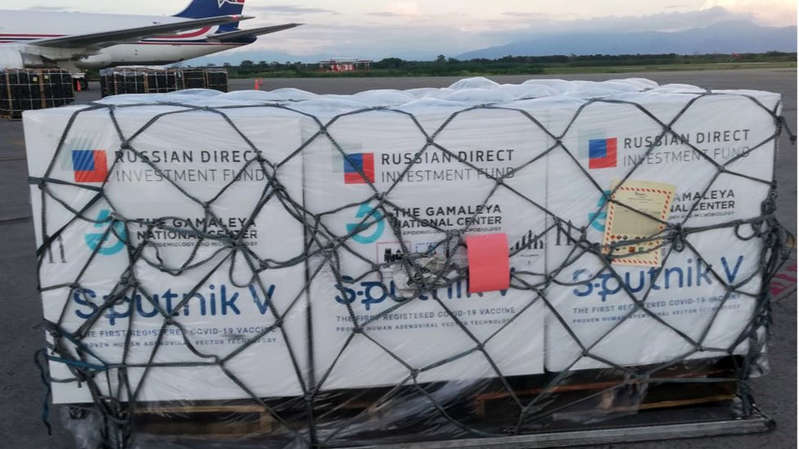In Argentina, a preprint of the study was released, which concluded that the neutralizing activity of antibodies after inoculation with Sputnik among those who had not previously had coronavirus is growing for six months. Since the end of last year, the country has been vaccinated with the Russian vaccine, now 60% of residents have been vaccinated with at least one dose.
Argentine scientists decided to check whether the thesis that antibody titers to SARS-CoV-2 decrease over time is true for previously unhealthy vaccinated people, but the effectiveness of neutralization increases. This conclusion was contained in a recent study conducted in Italy on recovering patients with coronavirus.
To exclude the influence of a previous illness, the subjects in Argentina were divided into two groups – those who had previously suffered from SARS-CoV-2, and those who did not.
Scientists studied 1,800 blood serum samples of the vaccinated, and also conducted a dynamic analysis of the indicators of 118 vaccinated volunteers. The result showed that although the levels of IgG antibodies to the virus fall over time, the effectiveness of neutralizing the virus in vaccinated and non-sick people increases. This suggests that antibodies mature for several months after vaccination. The study has so far been published as a preprint, that is, it has not received reviews from the reviewers.
Antibody maturation
The neutralizing ability of antibodies increased against various variants of the coronavirus (“alpha”, “beta”, “gamma”, “delta” and “lambda”), Argentine researchers found. With respect to variants “beta” and “gamma”, partial evasion of the immune response was observed. In Russia, these options are now supplanted by the “delta”. The lambda variant was discovered in Peru late last summer. WHO is still studying how contagious it is. This strain has not yet become widespread throughout the world.
The researchers took serum samples 42 days after Sputnik vaccination and found that they neutralized beta and gamma strains worse than the original Wuhan version. However, 120 days after vaccination, the situation changed: the neutralizing activity against “alpha”, “beta”, “gamma” and “delta” was higher compared to the Wuhan variant. For lambda, it was slightly lower.
“Interestingly, the effectiveness of neutralization increased over time (from 42 to 120 days after vaccination) for the beta, gamma and delta variants, which suggests that the maturation of the antibody response in Sputnik vaccinated is associated with an increase in the diversity of antibodies against SARS-CoV-2, “the study says. It is the variety of antibodies that is responsible for protection – therefore, experts often talk about a direct correlation between the quantity and quality of antibodies. The findings of Argentine scientists suggest that this may not always be the case.
In relation to previously ill and then vaccinated, a significant increase in neutralizing activity was not observed over time, and the highest antibody titers were after the first vaccination.
- “Vaccination alone cannot defeat the virus”: is it possible to get Covid-19 from a vaccinated person?
- Ministry of Health of Russia: in six months you need to be vaccinated again against coronavirus
This does not mean that the recommendation of the Russian Ministry of Health on revaccination every six months needs to be changed, says Ilya Yasny, head of scientific expertise at the pharmaceutical venture fund Inbio Ventures. “We need to carefully deal with this study: for example, [find out] how the antibodies were measured, from whom the serum was taken, what exactly was measured and how, how careful was the control,” the expert says.
“The conclusion of Argentine scientists about the increase in the variety and quality of antibodies is quite logical, and it does not contradict the fact that it is necessary to be revaccinated, because the number of antibodies is still falling,” he explains. He also believes that the number of antibodies correlates with their diversity, and therefore with higher protective properties, including from new variants.
At the same time, Yasny admits that the six-month period was taken by both Russian and foreign departments, “from the ceiling,” since “it is impossible to know for sure whether it is better to vaccinate in six months or eight months.” No studies have been conducted to clarify this.
After about six months, most people have a decrease in antibody titers. This does not mean that they are not protected, Yasny reminds. A person without antibodies can not get sick; a person with high titers can get to the hospital. But while it is believed that people with lower titers are less well protected – such a conclusion was made in one study of the Pfizer mRNA vaccine, says Yasny.
The BBC has sent a question to the Russian Ministry of Health about whether the department plans to revise its recommendations in connection with the data of Argentine scientists, and is awaiting a response.

The emergence of new strains of the virus, which are more infectious, the ability to evade the immune response and a greater ability to replicate, have made the fight against the pandemic more difficult. Scientists of the Center. The Gamaleys have already announced that they have modified Sputnik for the delta strain, but there are no guarantees that new vaccines will not cease to be relevant even at the registration stage.
Long-term study of the humoral (antibody) response will help to understand whether vaccines need to be adapted to new options and how quickly to do it. This requires constant monitoring of new mutations.
According to some experts, only vaccination of 80-90% of the world's population will help stop the mutations of the coronavirus. The fact that some people are immune, and some are not, allows the virus to mutate effectively, finding new ways to bypass antibodies.
The coronavirus will become “like a runny nose” when about 100% of the population will have antibodies to it, Didier Pitte, head of the infectious disease prevention and control service at the Geneva University Hospital, said in an interview with RIA Novosti. According to him, this can happen in 5-10 years.

